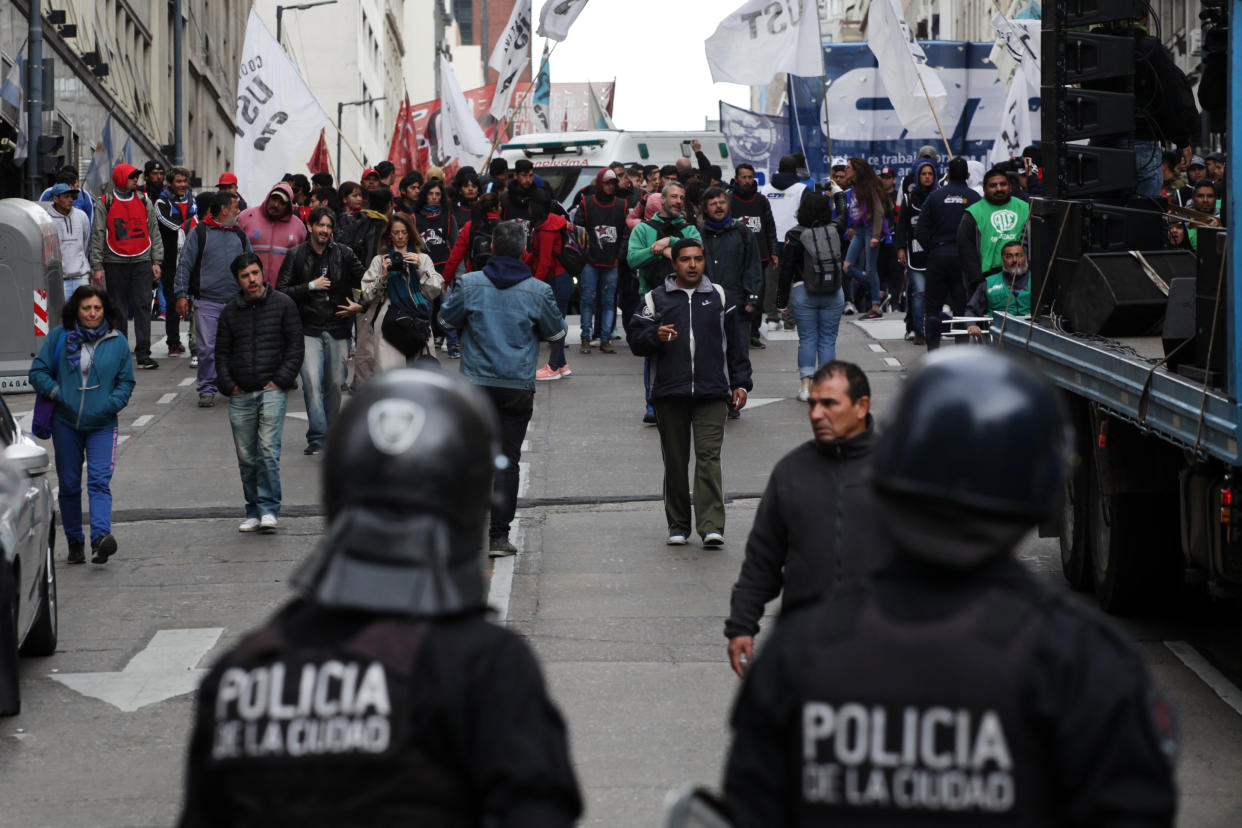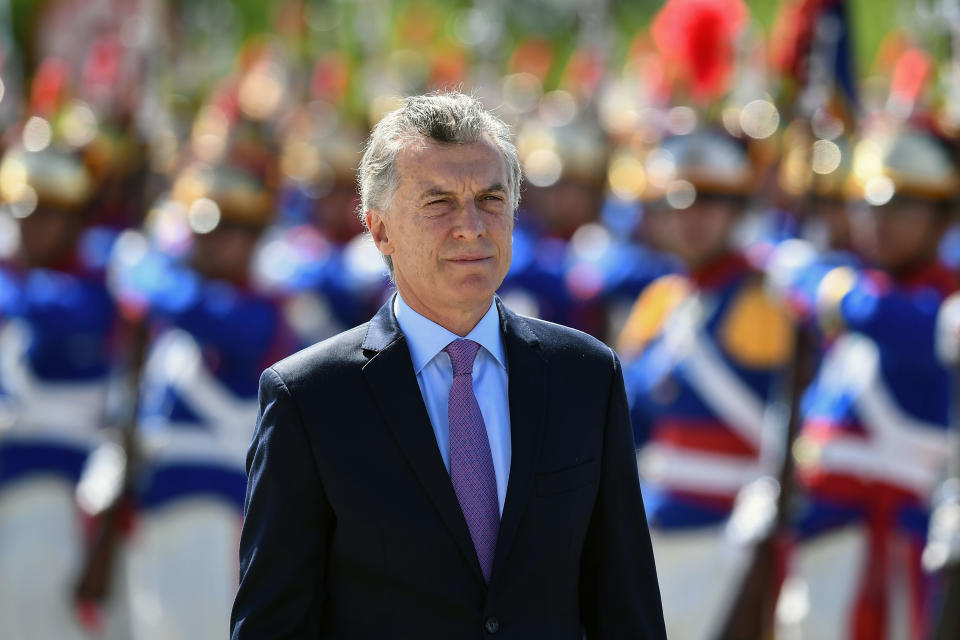Argentina brings back currency controls as economic crisis deepens

Argentina has re-introduced currency controls to protect its flagging peso, in a radical change by president Mauricio Macri from the free-market policies he has embraced since taking office four years ago.
The move allows the central bank in Latin America’s third largest economy to limit how much foreign currency companies can buy, and how much they can transfer abroad.
Individuals will still be able to withdraw dollars from their accounts, but there will be a monthly $10,000 (£8,268) limit on withdrawals or transfers. Firms will also not be allowed to stockpile dollars, Reuters reports.
The policy is now under intense scrutiny from the International Monetary Fund (IMF), which can exert significant influence as it has a $57bn standby agreement with the government to prop up Argentina’s struggling economy.
READ MORE: Argentina is in danger of not paying back its debts
It marks a political embarrassment for the president, who was elected on a pledge to sweep away the highly interventionist era under his left-wing predecessors, Nestor and Cristina Fernandez de Kirchner.
Businesses welcomed his election in December 2015 and he quickly set about liberalising the economy. He removed currency and export controls and returned the country to global financial markets, after settling a debt dispute dating back to its economic collapse in 2001.
But double-digit inflation and significant austerity cuts to services and subsidies in the years since have battered his popularity, with many Argentines taking to the streets.

Macri adopted what the government called “extraordinary measures” after he was defeated by left-wing rival Alberto Fernandez in a primary vote for the presidency earlier this month.
The defeat sparked panic among investors ahead of the presidential election on 27 October, with markets fearful of a Fernandez victory.
Argentina’s central bank has spent almost $1bn of its reserves trying to prop up the peso since Wednesday, according to Reuters, as the currency, bonds and stocks all slid after the shock result.
READ MORE: Inside Argentina’s yellow-vest movement as anger grows at economic crisis

